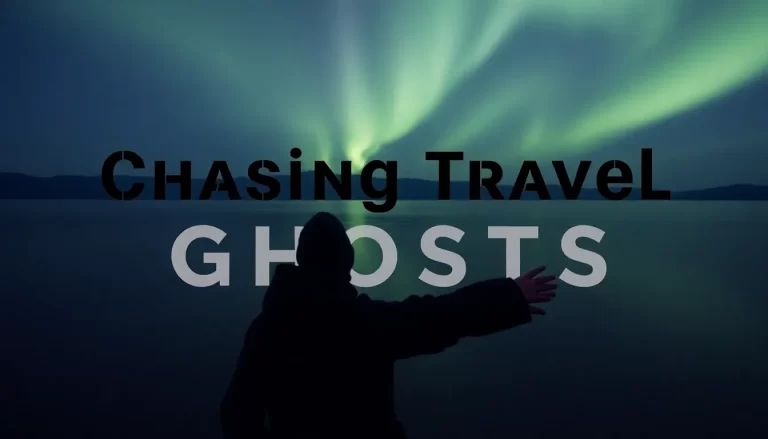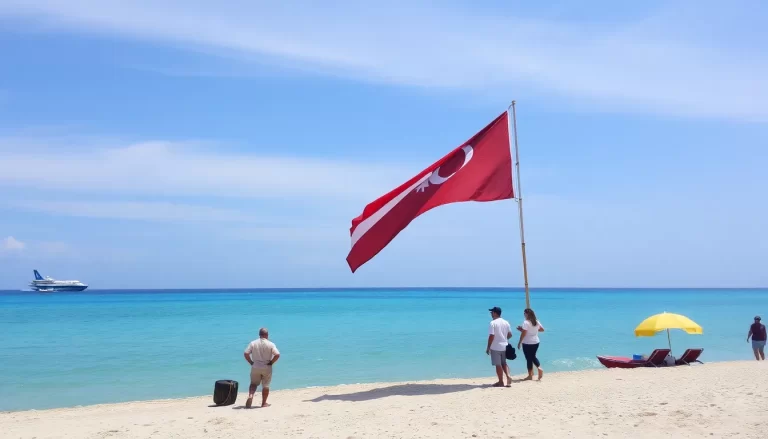Traveling to a new destination can be both exhilarating and daunting, especially when it’s a place you’re not familiar with. The thrill of exploring the unknown is often accompanied by the fear of the unexpected. However, with proper planning and research, you can turn that fear into excitement and confidence. Here’s a comprehensive guide to help you effectively plan a trip to a destination that is completely foreign to you.
Is $5000 enough for a trip?
When considering a trip to an unfamiliar destination, budgeting is crucial. A budget of $5000 can be ample for many destinations, especially if you plan wisely. Factors influencing your budget include your travel style, the length of your stay, and the cost of living in your destination.
Here are some aspects to consider when determining if $5000 is sufficient:
- Flight Costs: Depending on where you’re flying from and to, airfare can vary significantly. Use flight comparison tools to find the best deals.
- Accommodation: Consider the type of lodging you prefer. Hostels, hotels, or vacation rentals can impact your budget differently.
- Daily Expenses: Estimate your daily food, transportation, and activity costs.
- Emergency Fund: Always set aside a portion of your budget for unexpected expenses.
- Activities and Experiences: Research the costs associated with activities you wish to engage in.
How to plan a trip for beginners?
Planning a trip can be overwhelming, especially for beginners. However, breaking it down into manageable steps can ease the process. Here’s a structured approach to planning your trip:
- Choose Your Destination: Research different places and select a destination that excites you.
- Set a Budget: Determine how much you can spend and allocate funds for transportation, accommodation, food, and activities.
- Book Flights and Accommodation: Look for the best deals and book in advance to secure lower prices.
- Create an Itinerary: Outline your daily activities but remain flexible to explore spontaneously.
- Prepare for Cultural Differences: Research the local customs, language, and etiquette.
How do I create a trip plan?
Creating a trip plan involves gathering information and organizing it effectively. Here’s how you can create a comprehensive travel plan:
- Research the Destination: Utilize travel guides, blogs, and forums to gather insights about your destination.
- Outline Key Attractions: Make a list of must-see places and experiences based on your interests.
- Map Your Journey: Use maps to plan the most efficient routes between attractions.
- Plan Your Transportation: Research local transportation options, such as public transit, rental cars, or ridesharing services.
- Accommodation Details: Ensure your lodging options are confirmed and accessible to your planned activities.
How do you usually plan for a trip?
Every traveler has their unique approach to planning trips. Here’s a commonly effective strategy:
Start with a thorough research phase. Utilize various resources, such as:
- Travel Guides: Books like Lonely Planet or Rough Guides provide valuable information on different destinations.
- Online Blogs: Travel bloggers often share up-to-date information and personal experiences that can enhance your planning.
- Social Media: Platforms like Instagram and Pinterest can provide visual inspiration and practical advice.
After gathering information, create a flexible itinerary that allows for exploration while ensuring you cover essential sights. This balance can lead to a more enjoyable travel experience.
What to do if you know nothing about a place?
Arriving at a destination with little knowledge can be intimidating, but it doesn’t have to be. Here are steps to prepare effectively:
- Buy a Travel Guide: A good travel guide can provide a wealth of information about transportation, culture, and attractions. Consider guides such as Rough Guide or Lonely Planet for a comprehensive overview.
- Read Travel Blogs: Blogs often offer personal insights and current information that can supplement guidebooks. Look for recent posts about your destination for fresh perspectives.
- Ask Friends and Family: Tap into your network to find anyone who has visited or knows about the area. Personal recommendations can lead to hidden gems.
- Connect with Other Travelers: Utilize platforms like Couchsurfing or travel forums to connect with fellow travelers who can share their experiences and insights.
- Read Books: Understanding the history and culture of a place can greatly enhance your travel experience. Consider reading historical novels or non-fiction related to your destination.
How to stay safe while traveling?
Safety is paramount when traveling, particularly in unfamiliar territories. Here are some tips to ensure a safe journey:
- Research Safety Precautions: Familiarize yourself with common safety issues specific to your destination, such as local scams or areas to avoid.
- Learn Local Customs: Understanding local etiquette can help you blend in and avoid unintentional offenses.
- Stay Aware of Your Surroundings: Keep your belongings secure and be mindful of your environment, especially in crowded areas.
- Emergency Contacts: Have a list of local emergency numbers and the contact information for your country’s embassy or consulate.
The importance of travel insurance
Travel insurance is an essential component of travel planning, especially for those venturing into unknown territories. Here’s why you should consider it:
- Protection Against Unexpected Events: Travel insurance can offer coverage for trip cancellations, medical emergencies, lost luggage, and more.
- Peace of Mind: Knowing that you have a safety net allows you to focus on enjoying your trip rather than worrying about what might go wrong.
- Access to Emergency Assistance: Many travel insurance policies provide 24/7 assistance, ensuring you receive help when needed.
Traveling to unfamiliar places can push you out of your comfort zone, but it can also lead to incredible experiences and personal growth. By following the steps outlined above, you can ensure that your journey is not only enjoyable but also enriching. Equip yourself with knowledge, plan effectively, and embrace the adventure that awaits you!







